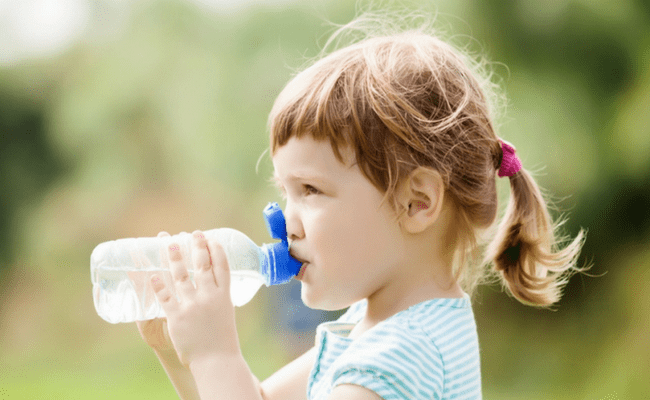Definition of Dehydration in Children:
Dehydration is defined as excessive loss of body water. In physiology, dehydration is a deficit of total body water with an accompanying disruption of metabolic processes.

Classification or Types of Dehydration in Children:
It includes-
- No signs of dehydration,
- Some dehydration,
- Severe dehydration.
Assessment Strategy or Sign and Symptoms of Severe Dehydration in Children:
Points | No signs of dehydration | Some dehydration | Severe dehydration |
Look at condition | Well, alert | Restless, irritable | Lethargic or unconscious, floppy |
Eyes | Normal | Sunken | Very sunken and dry |
Tears | Present | Absent | Absent |
Mouth and tongue | Moist | Dry | Very dry |
Thirst | Drinks normally, not thirsty | Thirsty, drinks eagerly | Drinks poorly or unable to drink |
Feel: Skin pinch | Goes back quickly | Goes back slowly | Goes back very slowly |
Decide | The patient has no | If the patient has two | If the patient has two |
Management of Severe Dehydration in Children:
Measures Should Be Taken In Various Degree Of Dehydration:
1. Measure should be taken for no sign of dehydration: Patient first seen with no signs of dehydration can be treated at home:
a. ORS packets should be given at home for 2 days,
b. Demonstration how to prepare and give solution,
c. After each loose stool the mother should give the following amount of ORS to her child.
Age | Amount of ORS |
Less than 2 years | 50-100ml |
2-9 years | 100-200ml |
> 10 years | As much as wanted |
2. Home Management:
a. Give more fluid than usual,
b. Give more food than usual.
c. Minimum one extra meal for two weeks.
d. Referral knowledge.
- If not improved within 3 days,
- More loose motion,
- Increased vomiting,
- Depressed anterior fontanels,
- Thirsty,
- Unable to drink or food,
- Visible blood in stool,
- Fever.
Instruction to the mother of patient to return if any sign (above) develop.
3. Measure should be taken for some sign of dehydration: Rehydration therapy:
ORS 75 ml/kg within 4 hours irrespective of age. Reassess after 4 hours. If improved then treated as no sign of dehydration if not, referred to the hospital.
4. Measure should be taken for severe dehydration:
In severe dehydration, patient should be rehydrated by intravenous (TV) fluid such as cholera saline as follows:
Age | 1st give 30 ml/kg | Then give 70 ml/kg |
Infants (<12 months) | 1 hour | 5 hours |
Older (> 12 months) | 30 minutes | 2-14 hours |
More questions related to this article:
- What do you mean by dehydration?
- What are the types of dehydration?
- What is the classification of dehydration?
- How will you assess dehydration status of a child?
- How will you assess dehydration status of a patient with diarrhea?
- Mention the assessment strategy of severe dehydration.
- What are the sign and symptoms of dehydration?
- Discuss the management of severe dehydration.
- How will you manage a child with some dehydration?
- How will you manage a child having diarrhea with severe dehydration?
- A two years boy presented with acute watery diarrhea for 2 days. How will you assess his dehydration status and how can you manage a child with some dehydration?

Maria Khatun Mona is a Founder and Editor of Nursing Exercise Blog. She is a Nursing and Midwifery Expert. Currently she is working as a Registered Nurse at Evercare Hospital, Dhaka, Bangladesh. She has great passion in writing different articles on Nursing and Midwifery. Mail her at “maria.mona023@gmail.com”
